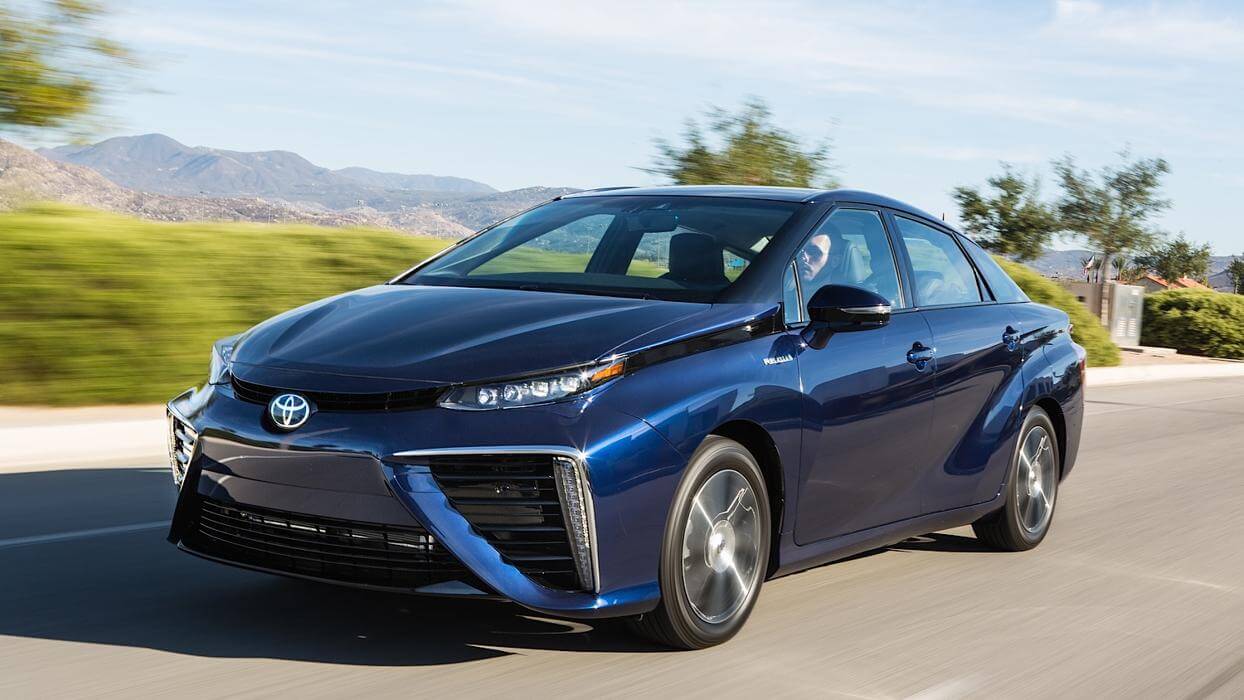
Toyota Motor Company announced a plan to transition to fully electric cars. All models sold under the brands Toyota and Lexus, by 2025, will be offered exclusively with electric and hybrid propulsion systems. By 2030, the company plans to reach sales of 5.5 million electrified vehicles, among which 1 million will be fully electric (EV) with zero emissions of harmful substances into the atmosphere, working exclusively on the basis of battery (BEV) or hydrogen fuel cells (FCEV).
To carry out the electrification of the model range, Toyota expects over 10 years (2020-2030). During this time, the company intends to significantly accelerate the development and launch of hybrid models (HEV), rechargeable hybrids (PHEV) and electric vehicles BEV and FCEV. Already in 2020, Toyota will release to the global market at least 10 models BEV. Sale of novelties will start first in China, then in Japan, India, USA and finally in Europe. At the moment the company has virtually no electric car, not counting the model Mirai FCEV sold in a limited number of markets. However, in the next decade, the company will produce not only cars but also commercial models of FCEV.
It should be recognized that Toyota’s recent years quite skeptical of electric vehicles, powered by batteries. In 2014 she abandoned the joint project with Tesla Motors to release electric version of the RAV4 crossover and shut down production of electric modification of a mini-Kara iQ – low sales. The company has managed to sell only about 100 such machines in the United States and Japan. However long the company to resist the progress failed. But how else? Careless — and the main competitors you will quickly be overtaken. In the end, the largest automaker of Japan decided to change the strategy. Overall impact, of course, not only the activity of competitors, but also to upcoming bills in China, India, Europe and other countries, which will regulate the use of environmentally friendly transport to reduce atmospheric pollution and reduce greenhouse gas emissions. Therefore, more dolgorukovoj the future, Toyota plans by 2050 to 90 percent compared to 2010 levels reduce the carbon emissions of all its new models.
With the launch of ten new models of electric car company based in the outsiders in this field, can turn right into the race leader, at least among Japanese manufacturers, surpassing including the pioneer of this technology, the Nissan Motor company. The latter, presented its electric car Leaf in 2010, yet did not disclose more detailed details about the expansion of the range of the EV line, only putting on a joint plan with Alliance partners Renault and Mitsubishi to market by 2022 12 new vehicles with zero emission. Another Japanese company, Honda Motor, announced plans for the production of one model of electric car in China next year, and then another model for the European market in 2019 Even earlier about their plans for the transition to electric vehicles said companies such as BMW, Daimler, Volvo Cars and Volkswagen Group.
With regards to the scepticism of Toyota against electric vehicles based on batteries, it was connected primarily with the lack of technical characteristics of the latter. According to the company, despite the loud announcements of other manufacturers, the batteries still offer a very limited power reserve and low charge rate. In the end, Toyota decided to develop a battery with solid electrolyte independently. Commercial production is scheduled to begin by the beginning of 2020-ies. In addition, the company signed an agreement with Panasonic on the joint development and production of a new generation of batteries based on liquid electrolyte. By 2030 Toyota plans to invest in this business of about $ 13.3 billion. In addition, in conjunction with Mazda Motor and Denso (automotive components supplier) it is planned to develop a new architecture for EV. It is also planned the expansion of the HEV on the basis of the second generation of the power plant Toyota Hybrid System II (used in the current generation Toyota Prius) – the creation of a more powerful and simplified version of the hybrid system.
Forgot Toyota and the infrastructure, promising to create a station for recycling and reuse of batteries, exhaust their resources on electric vehicles, and extending the network of electric charging stations and hydrogen filling stations. Amid all these news of company’s shares at the auction rose 2.8 percent. This led to the fact that the capitalization of the company amounted to 22.7 trillion yen (about 202 billion dollars).
Toyota will completely abandon cars with internal combustion engines
Nikolai Khizhnyak